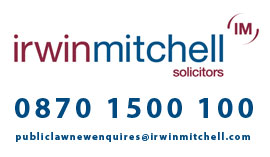Ground-breaking Supreme Court Judgement Will Force All Local Authorities to Improve How They Consult When Making Cuts and Changes to Services
What are the ingredients of a lawful consultation when local authorities or other public bodies consult on a decision which potentially affects everyone?
 Local Authorities across England will now have to take greater steps to ensure they properly involve local people in their decision-making processes as the Supreme Court ruled today (29 October 2014) that a London council’s consultation on its proposed Council Tax scheme misleadingly implied that it had no alternative and was therefore declared unlawful.
Local Authorities across England will now have to take greater steps to ensure they properly involve local people in their decision-making processes as the Supreme Court ruled today (29 October 2014) that a London council’s consultation on its proposed Council Tax scheme misleadingly implied that it had no alternative and was therefore declared unlawful.
The Supreme Court unanimously agreed that the Council did not tell local people what all the options were, misleadingly implied that there were no possible alternatives, and gave no information about why they had decided to implement their system rather than spreading the load more evenly across all residents. The consultation made it seem that the Council had no choice, which was incorrect, and was so unfair that the Court has declared it to be unlawful.
The case is the first time the Supreme Court has ruled on issues relating to public consultations and is expected to impact on all future public consultations, including those relating to expected future cuts to services throughout England and Wales.
 Alex Rook, a specialist health and welfare lawyer at Irwin Mitchell leading the case, said:-
Alex Rook, a specialist health and welfare lawyer at Irwin Mitchell leading the case, said:-
“This judgement will make a real difference in future to the way in which ordinary people are involved in decisions which affect their lives. Todays ruling will send a very clear message to all local authorities that they cannot hide away from the true reasoning behind their decisions, and will be required to give the public more information about the possible options and the reason why they favour their proposal.”
Charities should consider in relation to any public consultation that affects their client group whether the consultation 1) sets out the options; 2) explains the preferred option and 3) details why it is the preferred option. A failure to achieve these 3 criteria may render the consultation unlawful.
If you would like further information or have any queries that you would like to discuss with our Public Law specialists please call 0800 028 1943
Read Full Judgement Below –
http://supremecourt.uk/decided-cases/docs/UKSC_2013_0116_Judgment.pdf
Read Summary Below –
http://supremecourt.uk/decided-cases/docs/UKSC_2013_0116_PressSummary.pdf


